Diane Parker, Deputy Director-General: University Education in the DHET
TLDCIP is contributing massively to strengthening
teacher education in South Africa
The Teaching and Learning Development Capacity Improvement Programme (TLDCIP) and the Teaching and Learning Development Sector Reform Contract (TLDSRC) is contributing massively to strengthening teacher education in South Africa, says Dr Diane Parker, Deputy Director-General: University Education at the Department of Higher Education and Training (DHET).
In an interview with the Mail & Guardian, Parker said that for the first time in South Africa’s history, universities that offer teacher education programmes have joined forces to collaborate on a range of projects that have enabled the development of research-informed teacher education programmes and materials available to all institutions that offer pre-service teacher education programmes.
She said that 21 universities are now offering Foundation Phase Teacher Education programmes, focusing specifically on African languages.
The TLDCIP is funded by the TLDSRC, a partnership programme between the DHET and the European Union (EU).
“This partnership has been incredibly important, with an international framework in terms of access to expertise in other countries from a budget perspective, and growing the teacher education system. The current programme is strengthening teacher education across a range of programmes,” she said.
“Basically, the TLDSRC is a contract we’ve had with the EU for five years, and it started off with a previous partnership, where we were funded through a budget support programme to strengthen foundation phase teacher education in South Africa.
“It cemented an incredibly good relationship with the EU through their budget support programme. That programme also lasted for 5 years.”
She said the current initiative fell under the University Capacity Development Programme (UCDP), which seeks to develop teachers for all parts of the education system.
The programme covers several aspects, such as teaching special needs students, primary mathematics and literacy teachers and training TVET teachers.
She said while there have also been substantive gains in this capacity building through the TLDCIP, the Covid-19 pandemic has negatively impacted on teaching and learning in Higher Education Institutions (HEIs) that are offering the accredited programmes — something that the TLDCIP had not envisaged.
“It was unprecedented. Teaching and learning were initially impossible, because apart from UNISA, all other universities predominantly used a contact delivery mode. The system had to quickly move to delivering teaching and learning through multi-model means, including online and digital modes, and not all universities had that in place,” said Parker
“Some institutions had to quickly produce printbased materials and use social media platforms such as WhatsApp to try and ensure the safety of staff and students whilst continuing with teaching and learning. In addition to online delivery, some universities had to make teaching and learning materials available on USBs and in print-based form, and deliver across the country. All universities had to develop multi-model plans and the Department identified funding – which altogether came to about R2-billion, to support the implementation of the plans. It was quite substantial.”
Parker said the Covid-19 pandemic also exposed the deep inequalities in South Africa, as students who lived in rural and remote areas were less able to access remote online teaching and learning due to infrastructure and connectivity issues.
“Those who couldn’t be supported adequately were those students living in remote areas, and those living in conditions which made remote teaching and learning very difficult. About 94% of students had access to data. Mobile network operators also came on board and offered favourable rates for data bundles for students and paid about R65 per student for a 30G [package],” said Parker.
“Students, including those funded by the National Financial Aid Scheme (NSFAS) also needed laptops in order to access education. The pandemic posed many huge challenges for us. However, among others, and in support of teacher education in particular, JET Education Services came on board and we developed an online module called Teacher Choices in Action, which allowed teacher education students to undertake a component of their teaching practice requirements remotely. It was an interesting learning curve.”
She said, however, everybody came together collaboratively to ensure access to teaching and learning to the majority of students.
“We tried our best and supported institutions. An example was at Tshwane University of Technology, where there were too many students, and where the processes to acquire laptops for all students required a massive investment and is now underway. However, 90 million printed materials were sent out to where students are living.”
In the past, there have been some concerns that branches in the DHET work in silos and yet the TLDCIP projects intersect across TVET and CET branches. Parker said there was indeed a perception of silo working, but the university branch is responsible for teacher education which cuts across all sectors — ECD, TVET colleges, CET and universities.
“It is cross-sector work. Our programme right from the beginning was about collaboration. It’s been about drawing on the potential of people, creating collaborations between the Universities, civil society and the departments,” said Parker.
“The Department of Basic Education is responsible for ECD and schooling and collaborates with the Department of Higher Education and Training on teacher education. The cross-cutting responsibility for teacher education has enabled us to create stronger relationships and better synergies. It’s an incredible collaboration.”
Parker has also played a strong leadership role in the development of the Integrated Strategic Planning Framework for Teacher Education and Development (ISPFTED).
She said the Framework has had a massive impact on teacher education and development.
“I had just arrived at the Department as Chief Director for teacher education. There was a proposal that we needed to convene a national teacher education summit and we decided to do so. The main outcome of the Summit was the ISPFTED. It was an important piece of work and involved significant contributions from the ETDP SETA, the ELRC, SACE, the Education Deans Forum, the national and provincial education departments, teacher unions and other professional organisations which all worked together to develop the Framework,” said Parker.
“It was gratifying. Since the joint release of the Framework by the national Ministers of the two education departments, it has had good traction in the system. It really has given us direction in terms of implementation — at the time we projected to graduate about 8 000 initial teacher education students per annum and one of the big problems was that we needed 18 000 initial teacher education graduates per annum for basic education. We now produce over 26 000 teachers every year. The department itself has invested money in infrastructure, supporting institutions, including through our partnership with the EU. We’ve invested in teacher education and in particular in developing capacity for the teaching of African languages. We’ve also invested in a Teaching School at the University of Johannesburg and further work in terms of teaching practice standards on a range of programmes. I think we’ve developed partnerships across sectors and phases of education. It has been critical.”
In 2021, a second teacher development summit is planned to take place, Parker indicated. She said various issues would be discussed at the teacher development Summit that will lead to the further strengthening of teacher education and development.
We need to strengthen the Teaching Practice component of teacher education as an important priority. We need to engage collaboratively on this, and garner support from all the roleplayers because we think it’s something very important,” she said, adding that it would be important for the summit to continue the focus on primary school teachers and on ECD.
“We will also need to discuss the responsiveness of teacher education and critical issues of teacher responsiveness during major disruptions, such as we have seen during the Covid-19 pandemic.”
The summit should also focus on the fourth industrial revolution and new technological developments and the implications of this for teacher education and development.
“This means harnessing the digital transformation and how do we create access for teachers wherever they are, and how do we really develop the IT network capability across our entire country so our citizens are not left out, especially those in rural schools,” said Parker.
“The bigger issue is how do we prepare our learners for a rapidly evolving world of work. Teachers are able to contribute effectively to the achievement of the ideals behind the Sustainable Development Goals (SDGs). I think we face enormous challenges, particularly in poorer communities and child-headed households, and we need to more decisively address inequality. Education is one of the ways we can do this.
Parker said the upcoming teacher development summit must reflect on all these issues.
“Sustainable developmental goals are so broad and at the same time, some of the enduring problems need to be looked at again in order to strengthen and reflect on the Framework.”
Parker indicated that the purpose of the university education programme in the Department of Higher Education and Training is to develop and co-ordinate policy and regulatory frameworks for an effective and efficient university education system, by providing financial and other support to universities, the National Student Financial Aid Scheme (NSFAS) and national institutes for higher education. The Department thus plays a strategic implementation support and oversight role in university education.
About Diane Parker
Before joining the Department in 2008, she spent 18 years as a teacher educator and academic in the fields of sociology of education and mathematics education.
As DDG she is responsible for overseeing policy development and implementation to regulate and support the South African Higher Education System, including universities, private higher education institutions, the Council on Higher Education, National Institutes of Higher Education and the National Student Financial Aid Scheme (NSFAS). This work includes among others, providing financial support to universities and monitoring and evaluating the use of public funding for infrastructure, teaching and learning development, and research development.
In this position she has led a number of processes and projects, including the successful establishment of three new universities and the development of the National Plan for Post School Education and Training in South Africa.
EU and South Africa hold a privileged relationship that has grown over decades
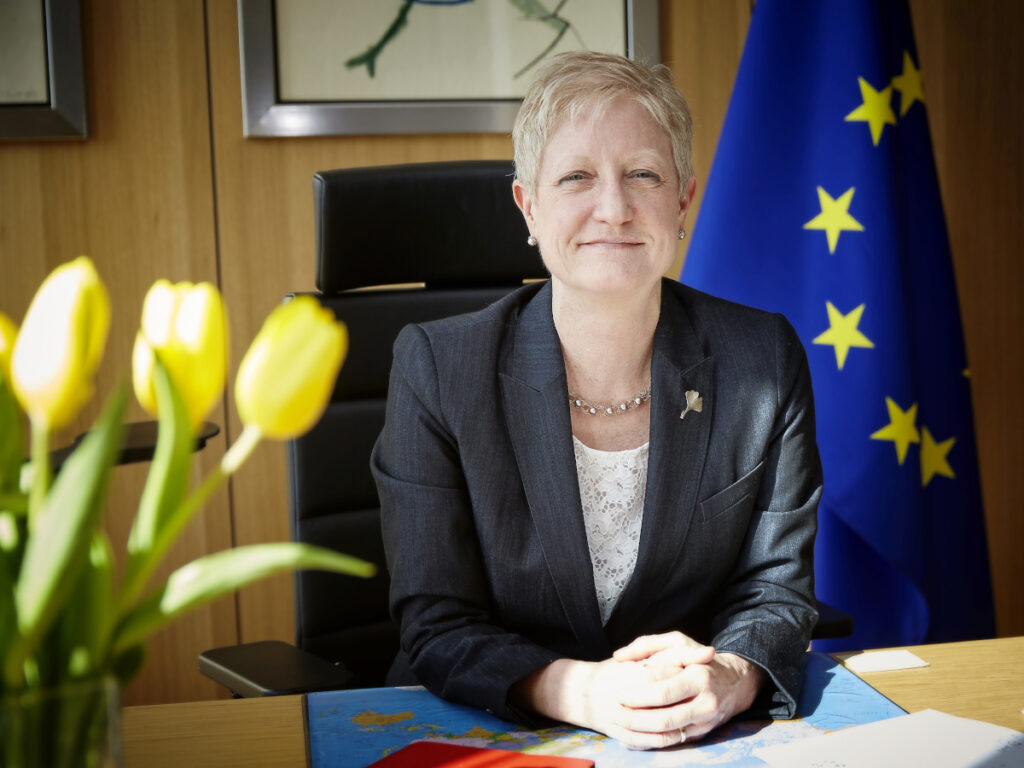 Dr Riina Kionka, European Union Ambassador to South Africa
Dr Riina Kionka, European Union Ambassador to South Africa
The European Union (EU) has received much acclaim and appreciation from stakeholders, the universities and colleges in South Africa that have benefitted from the budget support grant to Department of Higher Education and Training (DHET) in the past few years.
According to EU Ambassador Dr Riina Kionka, South Africa is the only key strategic trade and co-operation partner of the organisation in Africa.
“We have a strategic partnership with 10 countries around the world, and South Africa is the only country on the African continent,” said Kionka.
“Our partnership focuses on various global challenges such as climate change, Covid-19 recovery programmes and education. For us education is critical. We see education as a enabler that contributes to achieve EU priorities. Our development co-operation agenda with South Africa is based on the priorities of the National Development Plan’s 2030 vision.”
The EU has invested over R200-million in education in South Africa, which saw the launch of the Teaching and Learning Development Capacity Improvement Programme (TLDCIP), implemented through a strategic partnership between the EU and the Department of Higher Education and Training (DHET).
The funding was invested up to 2020 in an effort to strengthen teacher education at universities in the areas of early childhood development; primary teacher education, with a focus on literacy, languages and mathematics teaching; inclusive and special needs education and lecturer education for those teaching in TVET and CET colleges.
The TLDCIP has a strong focus on strengthening the quality of teacher education at universities to complement the huge gains that have already been made in respect of new teacher graduate outputs at universities, which reached the figure of 20 698 in 2015, and addressing the supply-demand gap that has been prevalent in the country for many years.
Kionka congratulated the DHET for successfully implementing the project, adding that the university branch has literally put its nose to the grindstone.
“The TLDCIP programme went well beyond what we wanted to achieve. Our education engagement doesn’t only include funding; it also included dialogue, research, policy reform and implementation.”
She said the discussions with colleagues from the DHET have attested to the ingenuity that some universities have displayed during the Covid-19 pandemic through the use of the EU grant, particularly with regards to Work Integrated Learning (WIL).
“Work Integrated Learning is an integral part of quality teacher education, and it is in this area that we are pleased to see innovation in the use of technology through the EU support. Due to the lockdown, universities were not able to send students to schools to complete their WIL component,” said the EU ambassador.
“The development and use of avatars by North West University is an initiative that has strengthened the training of students’ teaching skills in an exciting way. The avatars are programmed with different responses to mimic a classroom environment and students’ experiences certainly helped to develop their teaching skills, not to mention the fact that they had to think on their feet,” said the EU ambassador.
“We are also pleased that the development of an online course entitled Teacher Choices, which was used to supplement and support WIL during the pandemic. The data shows that 27 970 students engaged in this module, and the project is up for awards at Sydney University and at Wits.”
She added that special needs education has been a compelling focus in the Teacher Education for Inclusive Teaching project, which is part of the TLDCIP. The project has successfully established three centres of excellence for neuro-developmental learning needs, deaf studies and visual impairment studies.
“The EU believes that no one should be left behind, in line with the Constitution of South Africa. We know there are many education challenges, including poverty and languages, but the centres have achieved tremendous and resounding success,” said Kionka.
The ambassador said the EU will continue to work with the South African government and other stakeholders in the area of education in the future.
“We are definitely looking at continuing our relationship with the DHET and government in the area of education,” said Kionka.
“We are looking into identifying some of the education commitments in the coming years. We would like to broaden our scope and do more than this particular programme, such as scholarships, research, innovation and capacity development with regards to academic staff and students. All Member States of the EU, including their development agencies, are pulling together and are looking at future collaborations with South Africa, particularly in research and innovation programmes.”
Education is a shared priority for South Africa and the EU based on the recognition that quality education right from early childhood development through to higher education is crucial for employability and much needed broad based employment. The Covid-19 pandemic has added millions of unemployed and underemployed to the job market.
The collaboration with DHET has been exemplary. A true partnership from programme identification to formulation and throughout the entire implementation. We see the Teaching and Learning Development – of which the Teaching and Learning Capacity Improvement Programme is an integral part – as a true model for budget support actions in South Africa.
Seeing that South Africa’s budgetary allocation for education compares quite favourably to that of many other countries, going forward a focus will need to continue to be on cost-effectiveness and outcomes per Rand spent.
Kionka arrived in Pretoria in October 2019 to head the Delegation of the European Union to South Africa.
Previously, she was chief foreign policy advisor to the President of the European Council, Donald Tusk, appointed in 2014.
Prior to this, Kionka led the Central Asia Division at the European External Action Service (EEAS).
Before this she led on Human Rights for the EEAS and earlier at the EU’s Council Secretariat (from 2007), representing Secretary General/High Representative Javier Solana on human rights within the framework of the Union’s Common Foreign and Security Policy (CFSP).
Before her move to the EU Institutions, Kionka worked at the Estonian Ministry of Foreign Affairs.
Kionka started her working career as a research analyst on Estonian affairs for Radio Free Europe at the Radio Liberty Research Institute in Munich, Germany (1989–1993).
She holds a Ph.D in International Relations from Columbia University in New York City (2000) and she commenced her academic pursuits with a BA in International Relations and German Literature at Michigan State University (1983).
Good teachers are the single most important contributor to good education
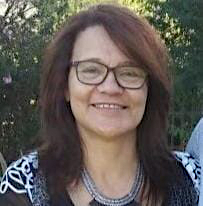 Michelle Mathey, Director of Teacher Education, DHET
Michelle Mathey, Director of Teacher Education, DHETIn 1993, the renowned educationist Michael Fullan stated: “Teacher education has the honour of being the worst problem and the best solution in education.” Twenty-seven years later, these words still ring true.
On the one hand, we are responsive to McKinsey’s dictum that “the quality of an education system depends on the quality of its teachers” by developing and implementing programmes and courses to strengthen the quality of pre- and in-service teachers. On the other hand, we are still bedevilled by research findings that show that many of our teachers still require extensive engagement to improve their subject content and pedagogical knowledge, and to apply this knowledge in their teaching.
The Department of Higher Education and Training (DHET) supports 24 of the 26 public universities to develop and offer Teacher Education programmes from initial teacher education through to postgraduate qualifications. In 2018, 28 203 new teachers graduated into the system, a figure that exceeds the national targets set for teacher education.
The question regarding the quality of these graduates to act as change agents leading to quality teaching and learning is a priority that frames all the DHET interventions in teacher education. How can we support our universities to strengthen their capacity to produce quality teachers? How do we work towards ensuring that our universities produce teachers across the post school education sector and in scarce skills areas?
The DHET acknowledges that the availability of quality teachers is the single most important contributor to education quality. If new teachers are developed in a manner that ensures that sufficient numbers of quality teachers who hold appropriate and relevant specialisations enter the workforce, this can have a significant positive impact on education quality in all education sub-sectors.
A key point of intervention therefore is in the manner that universities prepare new teachers through their ability to offer research-led and evidence-based, high quality initial teacher education programmes that are responsive to contextual and curriculum delivery requirements in the various education sub-sectors.
The background above provides the context that led to the signing of the Teaching and Learning Development Sector Reform Contract (TLDSRC) between the European and the DHET (2015–2020). The TLDSRC was conceptualised within the framework of the South Africa–European Union Multiannual Indicative Programme 2014–2020, as a response to specific developmental needs within the education, training and innovation sector.
The multiannual indicative programme’s overall objective was to “assist the government in transforming the education, training and innovation system so that it contributes to improved economic performance of the country”. The contract ended in August 2020, and the DHET is now finalising the closure of all the programmes supported by the European Union through the TLDSRC.
The Teaching and Learning Development Capacity Improvement Programme (TLDCIP) is one of the programmes supported through a budget sector support grant of R200-million from the EU, through the TLDSRC. It is the DHET’s main vehicle to strengthen the capacity and quality of teacher education in the university sector, and is focused on strengthening university capacity for the preparation of Early Childhood Development (ECD) educators, primary school teachers, teachers for inclusive and special needs education, Technical and Vocational Education and Training (TVET) college lecturers, Community Education and Training (CET) college lecturers, and university teaching. Universities are the primary beneficiaries of the TLDCIP.
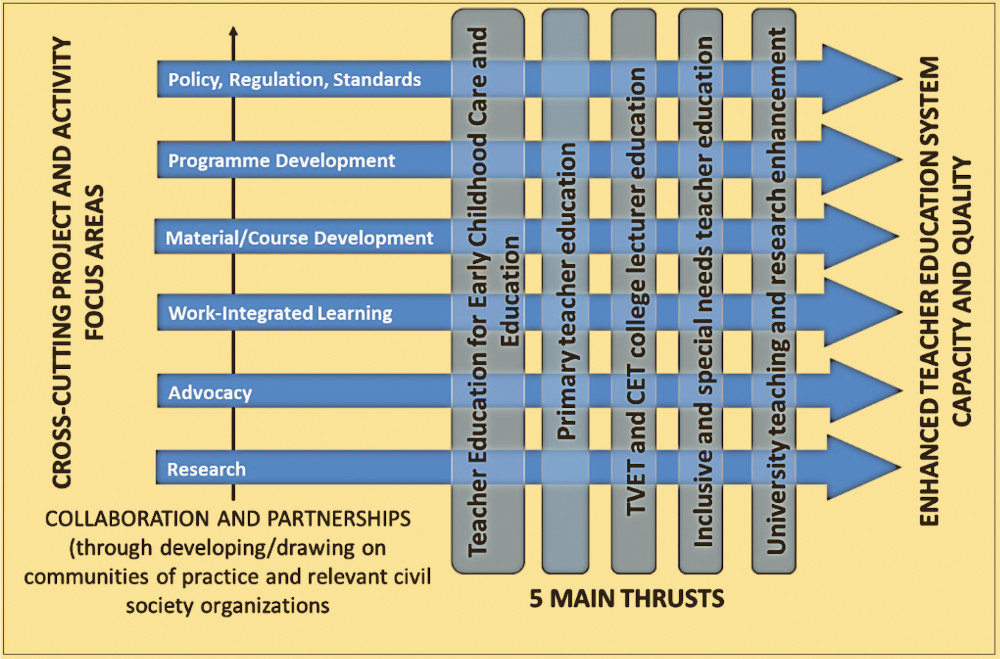 Figure 1
Figure 1
As shown in the figure1, the TLDCIP has five main thrusts, addressed through five projects, namely:
• The Teacher Education for Early Childhood Care and Education Project (TEECCEP)
• The Primary Teacher Education Project (PrimTEd)
• The Teacher Education for Inclusive Teaching (TEfIT) Project
• The College Lecturer Education Project (CLEP)
• The University Teaching and Research Enhancement Project (UTREP).
The figure also shows six cross-cutting activity and focus areas that are integrated into each of the five projects.
There have been many achievements across the five projects in the TLDCIP. The DHET plans to publish four supplements through the Mail & Guardian, each one focusing on a different project. This supplement focuses on the Teacher Education for Early Childhood Care and Education Project (TEECCEP).
A brief overview of the TLDCIP follows below.
The TLDCIP project activities fall within the overall strategy to improve the quality of teacher education that is embedded within the three quality goals illustrated in the figure2.
Through the support from the TLDCIP, universities offering initial teacher education programmes produced annual increases in teacher education enrolment and graduate numbers, as evidenced in the graph figure3.
The DHET is now placing considerable attention on whether the universities are producing the right kind of teachers to offer various school subject specialisations that fall into the scarce skills categories.
 Figure 2
Figure 2
The TLDCIP has also implemented activities to professionalise teachers in the early childhood development, adult and community education and technical and vocational education sub-sectors. To this end, three policies have been published that allow universities to develop and offer programmes leading to the professionalisation of these sub-sectors. The policies are:
a. Policy on Professional Qualifications for Lecturers in Technical, Vocational Education and Training (2013);
b. Policy on Minimum Requirements for Programmes leading to Qualifications for educators and lecturers in Adult and Community Education and Training (2015);
c. Policy on Minimum Requirements for Programmes Leading to Qualifications in Higher Education for Early Childhood Education educators (2017).
The DHET is aware of negative reports that testify to the poor quality of some teacher education programmes. The TLDCIP is responsive to this criticism by supporting academic communities of practice focused on priority teaching subject specialisations (mathematics, languages and literacy) to undertake research on university practices across the system with respect to the specialisation with a view towards the development of knowledge and practice standards for the teaching specialisations. In this way, the TLDCIP could assist to achieve greater convergence and rigour in teacher education curricula.
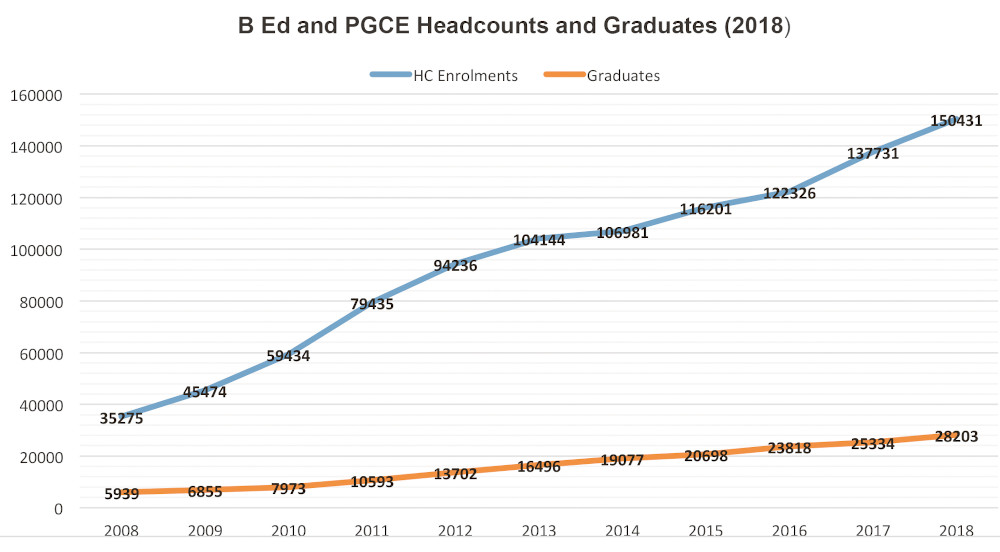 Figure 3
Figure 3
The TLDCIP has also afforded an opportunity for the strengthening of African languages through the establishment of Centres for African Languages Teaching (CALT). Thus far, two CALTS have been established — isiXhosa CALT at the University of the Western Cape and Sesotho and isiZulu CALT at the University of Johannesburg. Two further CALTS are in the planning stages.
Through the TLDCIP, 165 scholars have been supported to obtain their master’s or doctoral qualifications, with 95% of these being black and/or women scholars. 102 publications have thus far been generated, with more to follow by the end of the close out period in December 2021.
Finally, the education of the most vulnerable of our children — those with special needs — is also strengthened through the TLDCIP. Three Centres of Specialisation have been established for the development of programmes and resources in special needs education. These are listed in the table below.
| Centre for Visual Impairment Studies | University of Pretoria |
| Centre for Deaf Studies | University of Witwatersrand |
| Centre for Neurodevelopmental Learning Needs | University of Johannesburg |
In conclusion, we would be foolish not to acknowledge the complexity of our country and the historic inequalities that have followed us into democracy. Some people might say that South Africa has too many systemic problems that will prevent all our children from having access to quality teaching and learning. However, we would also be foolish to simply throw our hands in the air and give power to the naysayers. Mandela firmly believed in our ability to be innovative, committed and daring when he said: “It is not beyond our power to create a world in which all children have access to a good education. Those who do not believe this have small imaginations.”
We acknowledge and appreciate the European Union for the financial support that has allowed our academics the opportunities to use their imaginations and expertise to be innovative, daring and tireless in their efforts to strengthen the capacity of universities to offer quality teaching and learning in teacher education.
Michelle Mathey is Director: Teacher Education at the Department of Higher Education and Training
Teacher Education for Early Childhood Care and Education Project (TEECCEP). Strengthening university capacity to support Early Childhood Development in SA
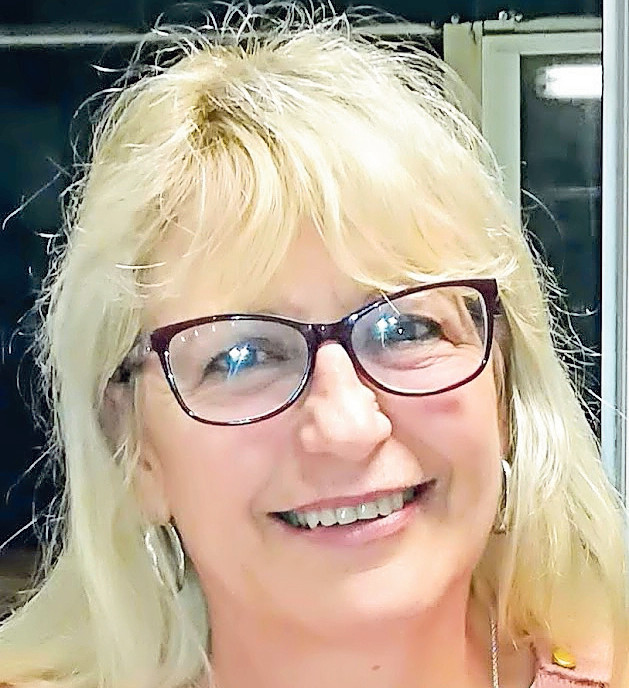 Zelda Addendorff
Zelda AddendorffThe commitment of governments across the world to invest in Early Childhood Development (ECD) is generally expressed in terms of expanding and improving comprehensive ECD, especially for the most vulnerable and disadvantaged children.
ECD is considered a fundamental human right in the South African National Development Plan 2030: Our future, make it work (NDP).
The government’s NDP places ECD at the centre of national interventions to eradicate poverty in South Africa.
The NDP proposes investing in “training early childhood development practitioners, upgrading their qualifications and developing clear career paths” as a measure to “improve the quality of education and long-term prospect of future generations”.
The 2015 National Integrated Early Childhood Development policy (NIECD), sets out how the goals of the NDP are to be achieved.
Universities developing the BEd ECCE and Dip ECCE

The NIECD recognises that “professionalization; continuing professional development and career paths; post-provisioning; adequate conditions of service; and a conducive working environment are critical elements of an effective national integrated early childhood development human resources strategy”.
It is therefore concerning that a recent situational analysis of ECD practitioners shows that “roughly 70% of practitioners nationally do not have any specialised training in working with children”.
Furthermore, the low qualifications level of the majority of ECD educators adds to the perception that the work of caring for and educating young children has little employment value and status.
The sector has been plagued by a lack of defined career pathways and opportunities for ECD practitioners. This has led to a paucity of well-qualified ECD practitioners and consequently many ECD programmes are of poor standard.
While qualifications may not be the only intervention needed to improve the quality of ECD programme delivery, there is sufficient evidence to suggest that it is an important condition for meeting the educational needs of children in early childhood.
It is against this background of the increasing focus on well-educated, well-trained professionals as a key factor in providing high-quality ECD that the Teacher Education for Early Childhood Care and Education Project (TEECCEP) was conceptualised by the Department of Higher Education and Training (DHET).
The TEECCEP is supported by the European Union (EU) and implemented by the Department with the goal of developing a national policy on minimum requirements for programmes leading to higher education qualifications for educators working in Early Childhood Care and Education (ECCE) contexts, and developing capacity at universities to offer these programmes on a scale that meets the needs of the sector.
Qualifications provided for in the MRQECDE

Policy development
South Africa needs a committed cadre of appropriately qualified and passionate teachers in the sector, and to date, ECD practitioners have not had access to qualification programmes offered by the Higher Education sector, nor have they had clear qualification paths mapped against the NQF, and aligned to defined career paths.
This situation has been remedied by the development and publication of the Policy on Minimum Requirements for Programmes Leading to Qualifications in Higher Education for Early Childhood Educators, (MRQECDE) in the Government Gazette No. 40750, 31 March 2017.
The MRQECDE policy is a first step towards contributing to the professionalization of the ECD educator workforce by developing enhanced capacity for the education and training of ECD (birth-4) educators.
Programme development
The TECCEP entered into a collaborative partnership with the Project for Inclusive Early Childhood Care and Education (PIECCE) for the development of a common Programme Framework for the Bachelor of Education in Early Childhood Care and Education (B Ed ECCE) at NQF level 7 and the Diploma in Early Childhood Care and Education (Dip ECCE) at NQF level 6, supported by exemplar materials.
The collaboration was led by UNISA, SAIDE, BRIDGE and Rhodes Centre for Social Development with TREE, Ntataise and False Bay College as consulting partners, and accommodated nine additional universities that were supported by the TEECCEP.
The cross-pollination of ideas from different ECD stakeholders has been one of the particular strengths of the collaborative nature of the TEECCEP.
The Programme Framework describes the principles, content and approaches which should inform programmes offered by Higher Education Institutions (HEIs) for the B Ed ECCE and the Dip ECCE.
The collaborative approach to designing the Programme Framework aimed at ensuring that it was sensitive to all ECCE student teacher contexts and those of their future learners.
It also ensured that current debates and perspectives on ECCE were taken into account.
The table below provides an overview of the universities that are developing B Ed ECCE and Dip ECCE programmes and the anticipated implementation dates.
Enhanced capacity at universities for ECCE
Seed funding was allocated for the appointment of 14 new academics across nine institutions, with the agreement that the universities undertake to employ the academics at the end of the project.
The newly appointed academics also received TEECCEP bursary funding for MEd and PhD studies in ECCE and participated in the development of the programmes at their institutions.
As part of the ECCE staff at their institutions, they will be able to initiate and support the programme implementation.
Development of quality materials and resources for the teaching of ECCE
In support of the Programme Framework, the PIECCE consortium designed illustrative packs as teacher educator support materials.
The aim of these is to guide curriculum developers in translating the Framework into implementable programmes.
The materials are designed for interactive learning, for use by teacher educators and ECCE student teachers.
The packs draw on the PIECCE Programme Framework themes and principles, including Critical Reflection, Inclusivity, and Quality.
TEECCEP Research
Research on pedagogy, policy analysis, Work Integrated Learning (WIL) and academic support for students, among others, have been incorporated into the development of the Programme Framework for the B Ed ECCE and the Dip ECCE.
The development of the Framework was furthermore informed by the conceptualization of Knowledge and Practice Standards for ECCE.
The Transformative Pedagogy Project (TPEC) and the Project for Early Childhood Policy Analysis (PECPA) enabled the funding of postgraduate studies for a further 25 students.
These projects, as well as the support for the South African Journal for Childhood Education (SAJCE), are reported on in further articles in this supplement.
Impact of the TEECCEP
The goal of professionalization will be furthered through the building of capacity at universities to offer these programmes on a scale that meets the needs of the sector.
In addition, the research that is undertaken will advance the knowledge base and educational research in ECD.
The TEECCEP research projects have provided an opportunity to existing and emerging researchers to contribute to the academic body of knowledge in ECCE in the South African context and to advance the discourse on professionalization of ECCE practitioners.
Critical issues of post-provisioning, adequate conditions of service and a conducive working environment, however, require urgent attention in order to realise the NIECD vision of an effective national integrated ECD human resources strategy.
As a country, we will not address issues of education inequality and quality if we do not first address these at the earliest levels of learning.
This is the belief that underpins the DHET’s work in this area, and to this end the TEECEP has set in motion a process that could potentially make a significant contribution to quality outcomes for children from birth to four.
MRQECDE policy|

Collaborating for the greater good in Early Childhood Care and Education (ECCE)
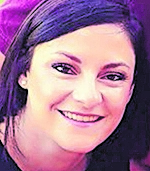 Benita Taylor
Benita TaylorThe Department of Higher Education and Training (DHET) initiated a project to build capacity in the field of Early Childhood Development and Education, from birth to four years.
This project was made possible through generous funding from the European Union over a period of four years.
North West University (NWU) was one of the recipients of the EU funding for the development of higher education qualifications in Early Childhood Care and Education (ECCE) birth to four.
Three academics from the University have worked in a collaborative partnership with eight other universities, civil society organisations, and TVET Colleges, in the Project for Inclusive Early Childhood Care and Education (PIECCE) to develop a standardised Programme Framework for the Bachelor of Education in ECCE (B. Ed ECCE) and the Diploma in ECCE (Dip. ECCE).
NWU did not hesitate to share its expertise and to provide a venue for the PIECCE university participants to gather over a period of three days from 7 to 9 March 2018, in order to begin to develop the structure of the Programme Framework.
The university hosted 20 delegates from nine different universities at the Potchefstroom campus, namely Cape Peninsula University of Technology, University of KwaZulu-Natal, University of Pretoria, University of Free State, University of Fort Hare, University of South Africa, Witwatersrand University and Walter Sisulu University.
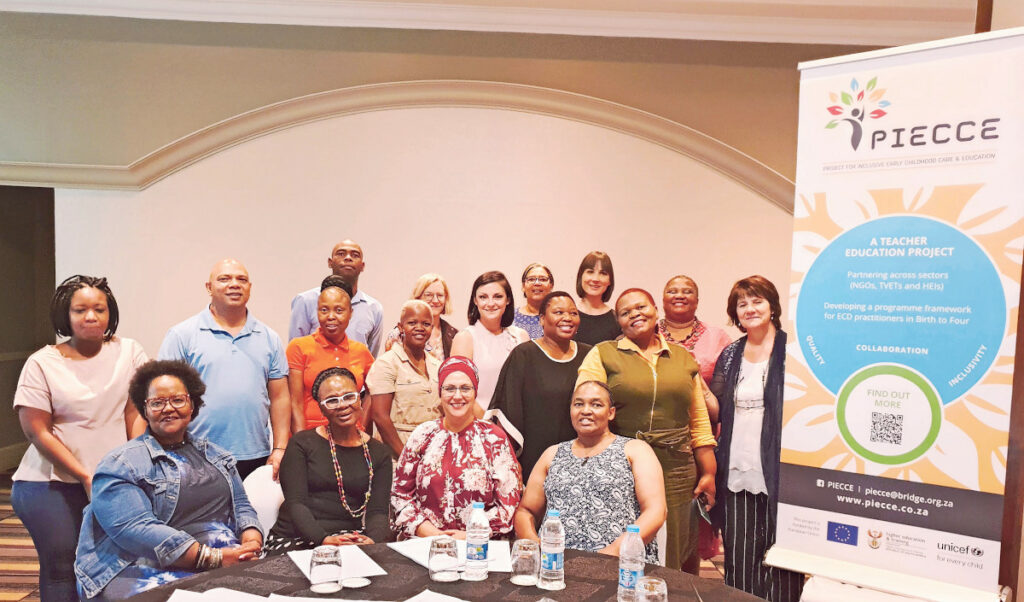 Members of the PIECCE consortium
Members of the PIECCE consortium
NWU’s Centre for Teaching and Learning facilitated the sessions, which included information-sharing sessions about the National Qualification Framework levels, the cognitive taxonomy and the levels of knowledge expected from students in each study year.
They also shared their knowledge about the programme outcomes and the writing of the assessment criteria for each outcome.
The sharing of ideas and opinions, coupled with the expert advice from the Centre for Teaching and Learning and the expertise of Prof Ebrahim from Unisa, ensured that great strides were made in developing the structure for a Programme Framework for the B. Ed degree and the Diploma in ECCE.
Three years down the line, I am able to look back at what was accomplished by the PIECCE and TEECCEP, and reflect on the experience, remembering the hard work, but also the sense of identity and belonging to a group of like-minded people.
The PIECCE consortium successfully completed the Programme Framework. NWU has developed both a Dip. ECCE and a B Ed ECCE programme.
However, in February 2017 when we first came together as PIECCE participants, the prospect of collaborating over a period of three years was very daunting.
We were individuals from diverse backgrounds, with different opinions and ways of operating within our own institutions and somewhat unsure of what was expected of us.
We were, however, united in our agreement that we needed to be able to deliver quality programmes to our students, countrywide.
Academics have not traditionally shared information about their programmes with others, as universities operate in a competitive space where the old adage “knowledge is power” tends to prevail.
The need to ensure that the programmes are relevant to diverse context and realising that no one person or group could possibly know all that would be required to accomplish the task soon dispelled such sentiments.
The value of input from a diverse group of people and freely sharing knowledge and experience was one of the strengths of the collaborative endeavour.
This is very aptly captured in a statement by one of the participants: “If we work together we bring in new perspectives beyond our own, we achieve more; we also achieve more quality.”
Yes, there were frustrating times, particularly as working in this way took much longer to complete activities than we had anticipated.
We also needed to be accountable to one another and adhere to set timeframes, which were not always honoured by everyone.
Opportunities created by the PIECCE facilitators for reflection sessions assisted in gaining insight into challenges and constraints caused by each individual’s circumstances and increased mutual understanding.
The following quotation from one of the participants sums it up very well:
“It has sometimes been difficult, but we have learned to question the assumptions we make about others, and the assumptions we make about how much we know ourselves, from the collaboration reflection sessions.”
This PIECCE/TEECEP has opened up possibilities for ongoing collaboration as we have forged new friendships and have access to a wide network of dedicated people working in ECCE.
The French Renaissance philosopher and writer from the 16th century, Michel Eyquem de Montaigne, must have had experience of collaboration when he said: “It is good to rub and polish our brain against that of others.”
Message from the B.Ed Programme Director
Dr Maryna Reyneke, Director: School of Language Education, Faculty of Education, North West University
“Three years after the start of the Project for Inclusive Childhood Care and Education (PIECCE), the Faculty of Education at the North-West University has successfully developed two new qualifications in response to repetitive calls from government to prioritise Early Childhood Care and Education. In the near future prospective students will be able to enrol for either a diploma or a B.Ed degree in ECCE.”
“These qualifications were developed within the Programme Framework that had been designed by the PIECCE consortium. Academics from the NWU, who formed part of the dynamic PIECCE team, agree that the three-year long journey was challenging yet extremely enriching and rewarding. These academics (Ms Benita Taylor, Ms Mumsy Boikanyo, Dr Susan Greyling and Ms Anitha Jansen van Vuuren as the programme manager) as well as faculty management are eager to see the new diploma and degree programmes being rolled out at the NWU.”
“We trust that many an early childhood caretaker and educator will be empowered with high-level knowledge and skills to ensure the optimal physical, emotional and cognitive development of extremely vulnerable and receptive young children in order to prepare them for living meaningful lives in the 21st century.”

Dr Naseema Shaik: Transforming the pedagogical landscape in Early Childhood Care and Education in South Africa
 Dr Naseema Shaik
Dr Naseema ShaikEarly childhood care and education has received heightened attention in recent years, both nationally and internationally. However, although South Africa’s democracy brought renewed hope for early childhood care and education, most pedagogical approaches in early childhood education in South Africa remain centred on a transmissive approach.
Many South African practitioners and teachers, resorting to teacher-centred habits inherited from the authoritarian structures of apartheid, continue to teach in a way that characterises children as incompetent.
In light of this challenge the Transformative Pedagogy Project for Early Childhood (TPEC), funded by the European Union (EU) and the Department of Higher Education and Training (DHET) was conceptualised by Dr Naseema Shaik, a senior lecturer specialising in early childhood education at the Cape Peninsula University of Technology (CPUT).
The project aimed to develop a transformative pedagogy to inform the development of the Bachelor of Education in ECCE and the Diploma in ECCE for children from birth to age four.
Eight public universities from four provinces in South Africa participated in the project.
An important tenet of a transformative pedagogy emanates from a child rights perspective.
The United Nations Conventions on the Rights of the Child (UNCRC) was an important catalyst for the realisation of children’s rights, with Articles 12 and 13 highlighting the importance of children being listened to and their decisions taken seriously.
The UNCRC introduced the right to participation, together with the other Ps of “provision” and “protection” as key rights of children.
Article 12 specifically emphasised the right of children to participate in all matters affecting them, whether these be within the family or community, such as the school, and freely express their opinions for consideration with respect.
Thus the key objective of a transformative pedagogy is to activate stronger social cohesion between children, practitioners, centre managers, practitioner educators, parents and district officials to sustain an equitable and respectful dialogue that strengthens transformative rather than transmissive pedagogy in South Africa.
The position of the child as “being” and “becoming” and having agency has been acknowledged as significant in the conceptualising of the project on developing a transformative pedagogy for children from birth to age four.
The purpose of this project was to explore the beliefs, knowledge and actions of practitioners, centre managers, teacher educators, parents and district officials to develop a transformative pedagogy in South Africa.
The progress of this research project culminated in three studies.
The first study, focusing on how practitioners listen to children in ECD centres, determined that listening is multi-dimensional.
An important finding of this research study is that practitioners create a sense of belonging when they listen in relational and responsive ways and when they respect and encourage children’s agency to create a sense of belonging and participation.
Moreover, the study highlighted that while practitioners listen in relational and responsive ways, complexities and tensions are evident in instances of practitioners listening in relation to their own and curricular expectations.
The second research study focused on engagement between parents and ECD centres. The findings of this research study reveal that responsive engagement needs to be prioritised between parents and ECD centres to facilitate stronger connectedness and belonging and for parents to be more than just “involved”.
“We need to develop children who are critical thinkers. We are currently teaching in transmissive ways and churning out education that is robotic in nature. Teachers instruct and children follow. The teacher has all the power and children must follow. We need to teach in participatory ways and involve children,” said Shaik.
“Transformative pedagogy needs to be learner-centred and transform both teachers’ and children’s thinking. We have projects on transformative pedagogy and they all show that the involvement of children in their learning is critical.”
The focus of the third research study concerned an exploration of parent understanding of culture and their cultural aspirations for their young children. Findings of this study reveal that culture narratives carry fragments of the multiple overlapping and contrasting understandings and definitions of culture across time and fields.
The findings were presented at a symposium entitled Towards a Transformative Pedagogy for Early Childhood Care and Education at the Education Faculty of the Cape Peninsula University (CPUT) on 23 January, with Dr Naseema Shaik, Project Co-ordinator, leading the symposium.
Thought provoking and deeply engaging keynotes were delivered by Professor Hasina Ebrahim (UNISA & UNESCO Co-Chair in ECD), Professor Yusuf Waghid (Distinguished Professor of Education, Stellenbosch University) and Professor Jonathan Jansen (Distinguished Professor of Education, Stellenbosch University).
While the project is still in progress, thus far the findings reveal that practitioners must make a shift about how to critically engage with children, pedagogy, parents and community in a diverse country such as South Africa.
This can only be possible if we reconceptualise our thinking and doing in early childhood care and education and interrupt the dominant discourses so that silences can be revealed.
Shaik said the Covid-19 pandemic has had a negative impact on the ECD sector in general.
“The government did not adequately address the support of ECD centres during the pandemic. Many ECD centres closed down, including privately-owned ECD centres, due to lack of responsiveness from government,” said Shaik.
“Many ECD centres unfortunately didn’t receive support they needed from government. On the positive [side], it called for parents to be partners and be involved in their children’s education. The pandemic called for more interaction and intervention from parents to work [with] their children at home.”
About Dr Naseema Shaik
Dr Shaik is currently leading a research programme about Transformative Pedagogy for Early Childhood at the Cape Peninsula University.
Shaik is a Foundation Phase lecturer in the Faculty of Education and the co-ordinator of the Grade R diploma course at the Cape Peninsula University. She specialises in teaching Grade R and literacy in the Foundation Phase.
She is also working with six universities in this regard. Shaik and her team have already written some articles which have been accepted for publication, but they are now focusing on publishing a scholarly book on Transformative Pedagogy in South Africa by March 2022.
A South African journal about childhood education and care
Founding editor Professor Elizabeth Henning, SARChi Chair, looks back
Although there has always been a great need for effective ECD centres, pre-schools and for competent teachers of primary schools, South African researchers in these areas did not have a specialised journal for the dissemination of their research findings until 2011.
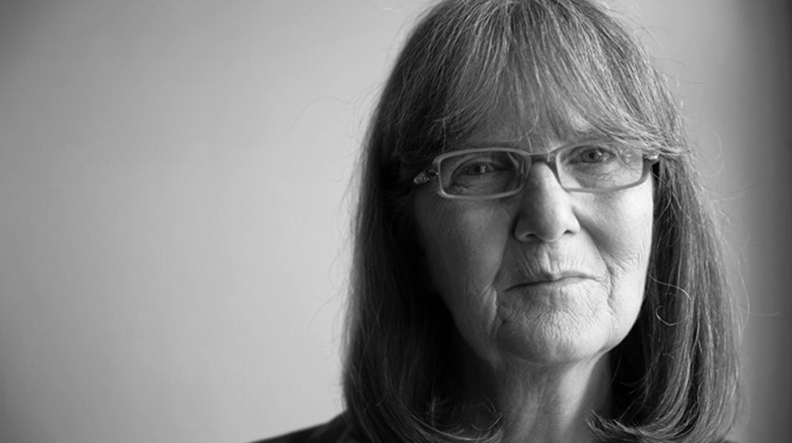 Professor Elizabeth Henning
Professor Elizabeth HenningIn that year the South African Journal of Childhood Education (https://sajce.co.za) was launched in the Centre for Education Practice Research (CEPR) on the Soweto campus of the University of Johannesburg (UJ).
In 2011, with the support of the EU, the department of higher education and training launched the Strengthening Foundation Phase Teacher Education Programme (SFFTEP). This initiative included a focus on advancing research in teacher education and childhood learning. Since then numerous articles have been published in UJ’s SAJCE journal.
An additional grant was awarded through the Teacher Education for Early Childhood Care and Education Project (TEECCEP), for sponsorship of page fees in the journal, between 2017 and 2020. This project has afforded a chance to many new scholars and teacher educators to advance their research. I think what SAJCE has given us is an opportunity for new scholars to inquire and to receive reviewer feedback from experts who know what our vision is — the advancement of knowledge in small studies and large surveys.
The research of new scholars and their mentors is available on our open-access journal website. Highlights from the archives show the names of leading scholars in language and literacy, mathematics, science and education, and ECD researchers from different parts of the world. The website also shows the listing of the journal on several prominent accreditation lists.
Comment by the Dean: Professor Sarah Gravett
 Professor Sarah Gravett
Professor Sarah GravettThe journal has served the scientific community of childhood education well since its first issue in 2011. Not only have numerous researchers published in its regular issues and special collections, but many new researchers have participated in writing workshops and review training sessions offered by the editorial team. In its open access modality at AOSIS publishers, it has been a leading South African journal in the open science movement.
UWC develops a Higher Certificate in Early Childhood Care and Education (ECCE) with the College of Cape Town
Internationally, there is a growing focus on early childhood education. Various countries have started to prioritise early childhood education as a strategic investment towards the building of a more prosperous society.
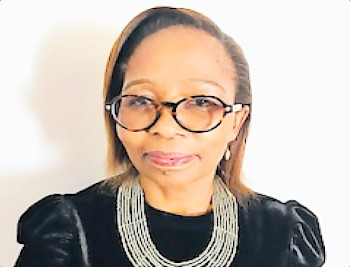 Professor Vuyokazi Nomlomo Dean, Education Faculty, UWC
Professor Vuyokazi Nomlomo Dean, Education Faculty, UWCNotwithstanding its many challenges, South Africa, too, has realised the importance of quality early childhood education programmes in nurturing young children’s holistic development as an important vehicle to enhance our human capital development.
South Africa’s National Development Plan 2030 specifically mentions the importance of quality early childhood development as a means of developing the potential of young children to improve the prospects of future generations.
Formal basic education (Grades R to 12) has been in the spotlight in South Africa for a long time.
Now the focus is being broadened to look at the care and education of young children from birth to before they enter formal schooling.
The Policy on Minimum Requirements for Programmes leading to Qualifications in Higher Education for Early Childhood Development Educators (MRQECDE) defines “early childhood” as the period of human development from birth to the year before a child enters Grade R or formal school.
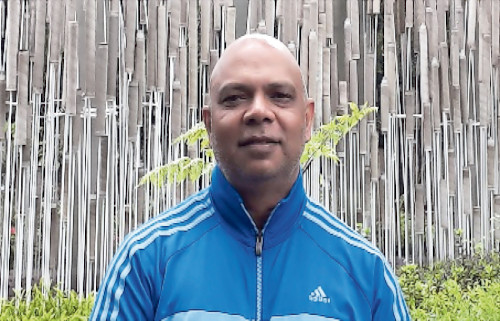 Professor Trevor Moodley Programme Coordinator, Education faculty, UWC
Professor Trevor Moodley Programme Coordinator, Education faculty, UWCThe national focus on the early childhood sector has also identified a huge need for an updated and relevant curriculum that will support the various programmes being introduced at government level.
The National Integrated Early Childhood Development Policy (NIECD), published by the Department of Social Development in 2015 sets, as a medium-term goal, the availability and accessibility of age-appropriate and developmentally stage-appropriate essential components of a comprehensive, quality Early Childhood Development (ECD) programme for all infants and young children and their caregivers by 2024.
The MRQECDE policy takes cognisance of the fact that the provision of quality ECD services relies on the availability of a committed cadre of appropriately qualified and passionate employees in the sector.
The education sector therefore has a responsibility to:
• Design and offer qualifications that will afford professional status and recognition to ECD educators.
• Standardise the training and qualifications of and provide a career pathway for ECD educators.
• Develop quality programmes to equip ECD educators with information, knowledge and skills to support the implementation of the NCF (National Curriculum Framework for children from birth to four years).
The aim to professionalise the ECD sector has highlighted the need for qualifications that will create a career path for ECD practitioners and provide opportunities of articulation for those practitioners who want to elevate the status of their qualifications.
In response, the Department of Higher Education and Training (DHET) and the European Union (EU) have provided South African Higher Education Institutions (HEIs) with funding to develop higher education qualifications specifically aimed at preparing people to teach children from birth to four years.
Technical and Vocational Education and Training (TVET) colleges have offered ECD qualifications over the years, but articulation into university programmes has not been easy for many applicants with such qualifications.
It is against this backdrop that the Faculty of Education at the University of the Western Cape (UWC) decided to develop a Higher Certificate in Early Childhood Care and Education in order to provide ECD practitioners access to university education and contribute towards strengthening teaching and learning in the ECD sector.
UWC received funding earlier this year from DHET to develop the HCert (ECCE) in collaboration with a TVET college, the College of Cape Town (CCT), as part of the Teacher Education for Early Childhood Care and Education Project (TEECCEP), a project supported by the EU and implemented by the DHET.
This certificate will hopefully facilitate articulation into higher level ECD and other programmes being offered by HEIs.
UWC decided to partner with CCT in designing this programme because TVET colleges have vast experience in the design and delivery of ECD qualifications.
Until recently, HEIs primarily offered initial teacher education programmes related to formal education such as the Bachelor of Education (B.Ed).
Collaboration between the TVET college and the university will enable the sharing of best practices and add value to the content that will be developed within the new qualification.
There has been a dire lack of collaboration between the various stakeholders who are providing ECD training. This refers to Non-Governmental Organisations (NGOs), TVET Colleges and Universities.
This programme will hopefully provide a collective input towards addressing the qualification and challenges that exist in ECD as well as ensuring a clear understanding of the various programmes that are available and how they link together and can create an articulation pathway.
It will also strengthen collaboration between TVET colleges and universities, and capitalise on the strengths of these institutions as game changers in the ECD space.
Although we are still in the design phase of the programme, it will be possible to co-present the certificate in collaboration with CCT as a means of strengthening closer working relations with CCT and tapping into their history and expertise in ECD.
In other words, the HCert (ECCE) programme will be based at UWC and we plan to teach it jointly with CCT academic staff.
We plan to offer the programme in the form of blended learning in order to accommodate the practical component of the curriculum.
We hope to draw from a large pool of applicants from TVET colleges, matriculants, ECD practitioners and those people working in the field who do not have the requisite qualifications and therefore do not fulfil the entrance requirements for higher education admission.
The latter group will follow an RPL (Recognition of Prior Learning) process for admission at UWC.
The funding from the DHET and EU has also made it possible to deepen scholarship in ECD, and some students (including CCT staff) will be receiving bursaries to pursue postgraduate studies in the field of ECD.
This initiative will hopefully contribute to growing a cohort of ECD academics in the country, which currently is sorely needed in order to offer the ECD qualifications at universities across South Africa.
The Faculty of Education at UWC is therefore very thankful for the generous funding and is excited to contribute to the development and professionalisation of the ECD sector in the country.
We look forward to offering the HCert (ECCE) programme with CCT in 2022.
Professor Vuyokazi Nomlomo is Dean of the Education Faculty at UWC; Professor Trevor Moodley is Programme Co-ordinator of the Education faculty at UW
Project for Early Childhood Policy Analysis: An argument for a holistic context for policy implementation
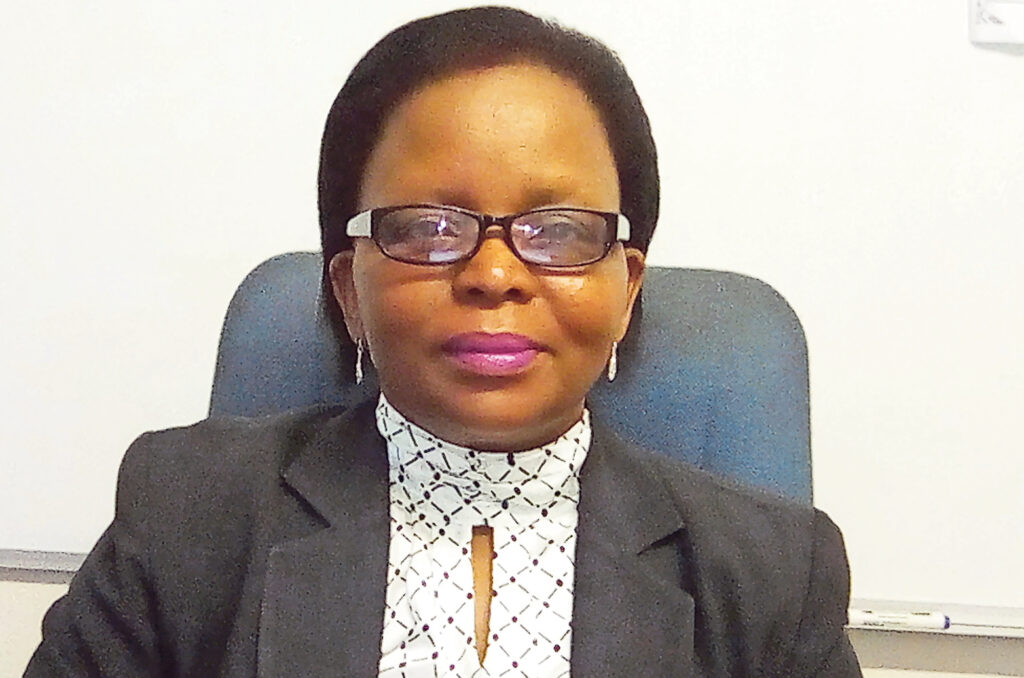 Dr Namhla Sotuku
Dr Namhla SotukuThe University of Fort Hare is the lead co-ordinating institution for the Project for Early Childhood Policy Analysis (PECPA). PECPA is a sub-project of the Teacher Education for Early Childhood Care and Education Project (TEECCEP), which is one of the projects supported by the EU and implemented by the Department of Higher Education and Training (DHET).
This is a collaborative research project, with participants drawn from six higher education institutions.
Within the agenda of re-imagining the Early Childhood Development (ECD) sector, this project examines policies set to drive this agenda.
Some of the questions posed are:
What are the existing policies for the re-imagining of the ECD sector?
What are the coherences amongst the policies?
How conducive is the context for policy implementation?
The research study argues for a holistic context for policy implementation.
Among other issues, this project looked into the professionalisation of the ECD sector. The DHET’s policy on Minimum Requirements for Programmes leading to Higher Education Qualification for Early Childhood Development Educators (MRQECDE), 2017, is a response to the need to professionalise the ECD educator workforce.
It describes higher education qualifications and outlines the career pathways for Early Childhood Care and Education (ECCE) educators.
The policy also specifies minimum competences of the envisaged ECCE Educator.
This policy has the potential to contribute towards improving outcomes for young children by improving the qualifications of practitioners responsible for early learning and care, and thereby the quality of ECD programmes.
This is acknowledged in the National Integrated Early Childhood Development policy of 2015.
“Qualifications and/or training of practitioners have been found to be associated with improved child outcomes over a range of countries and contexts, and are often used as an indicator of service quality.”
However, it can be argued that the MRQECDE policy is a promise in an unpromising environment.
The PECPA research shows that the policy development process was not sufficiently inclusive and dissemination of information about the policy has not been effective across all provinces.
This was established from the lack of knowledge of the policy by provincial officials and from discussions in provincial ECD forum meetings.
The dissemination of information about the policy during the MRQECDE policy advocacy campaign did not take into account the various levels at which policy implementation will take place, and the information was not cascaded by the provincial representatives who did attend, in all the provinces.
Some provinces are not ready for policy implementation as professionalisation of the ECD sector has effects on salary, resource allocation and employment conditions.
Provinces are still grappling with the employment of Grade R practitioners who qualified to teach Grade R by successfully completing the Grade R Diploma.
The prospect of providing for pre-grade and absorbing professionally qualified ECD educators is seen as an additional problem — one which the provinces are not equipped to deal with.
It is unclear how the policy is to be implemented beyond the development of qualifications and offering of qualifications by Higher Education Institutions.
The professionalisation of ECD educators has ramifications that impact on other government departments and sectors responsible for ECD.
For example, there have been no engagements about the environment (ECD centres) in which the envisaged graduate will practice.
Yes, Higher Education Institutions may plan the curriculum (theory) but where are the contexts for translating theory into practice?
Unlike schools, most ECD centres are privately owned and there seems to be no spatial development framework from the Department of Human settlements to ensure that quality ECD centres for professional practice are built.
Currently many ECD practitioners operate in centres that compromise children’s safety and their psychological wellbeing. While students will be exposed to this as one of the more challenging environments during their teaching practice, and this should be part of the training experience, there are simply not enough quality ECD centres where students can receive adequate mentoring and the experience of working in a functional ECD setting.
The preparation of ECCE educators will be comparable to that of teachers in the schooling sector, but they will not have equivalent professional status or remuneration and thus, as a “profession” it will remain undervalued.
At present there appears to be no plan to address this issue.
A set of guidelines on the promotion of decent work for early childhood education personnel was developed at a meeting of policy experts in Geneva in November 2013.
South Africa was represented by the Department of Basic Education as one of the government experts.
The published guidelines state that governments should, “ensure mechanisms that properly co-ordinate policies and practices between different ministries and departments, levels of government, public agencies and institutions and private providers”, to quote the International Labour Office.
The PECPA research study shows that such mechanisms have not been established in the case of the implementation of the MRQECDE policy.
Biography of Dr Namhla Sotuku
Dr Namhla Sotuku passed away in December 2020 as a result of Covid-19 complications. The ECD community and DHET would like to acknowledge her contribution as a champion for the sector.
Sotuku held a PhD in Education Management and Policy Formulation. She was the first director of the University of Fort Hare (UFH) Early Childhood Development Centre of Excellence, which focuses on research, teaching and learning and scholarly community engagement in ECD. She was an experienced teacher, researcher and teacher education materials developer and was a member of UFH’s Distance Education Project team that developed the innovative distance education B Ed programme for primary school teachers. The programme attracted international interest and won awards locally for its teacher education materials.
Sotuku has led various research projects. Some of the most recent include, a project on engaging communities in educational development through Community Literacy and Numeracy Groups, and a project commissioned by the DHET and the EU on developing UFH’s isiXhosa-based bilingual Foundation Phase B Ed degree. She was also the lead coordinator for the DHET/EU-funded Project for Early Childhood Policy Analysis. A collaboration between Wheelock College (Boston) and UFH resulted in her leading the development and the delivery of the Experiential Development Programme (EDP) – a four-course certificate in ECD.
Sotuku’s community engagement activities included the establishment of ECD communities of practice in rural and peri-urban contexts in the Buffalo City Municipal area for maximizing community and family engagement in ECD.
Africanisation, decoloniality of child development knowledge and practice standards for birth to four ECD educators
As our democracy deepens, South Africa needs policies and programmes to attract, train, support and retain Early Childhood Development (ECD) educators who are competent to support families and children in their development and learning.
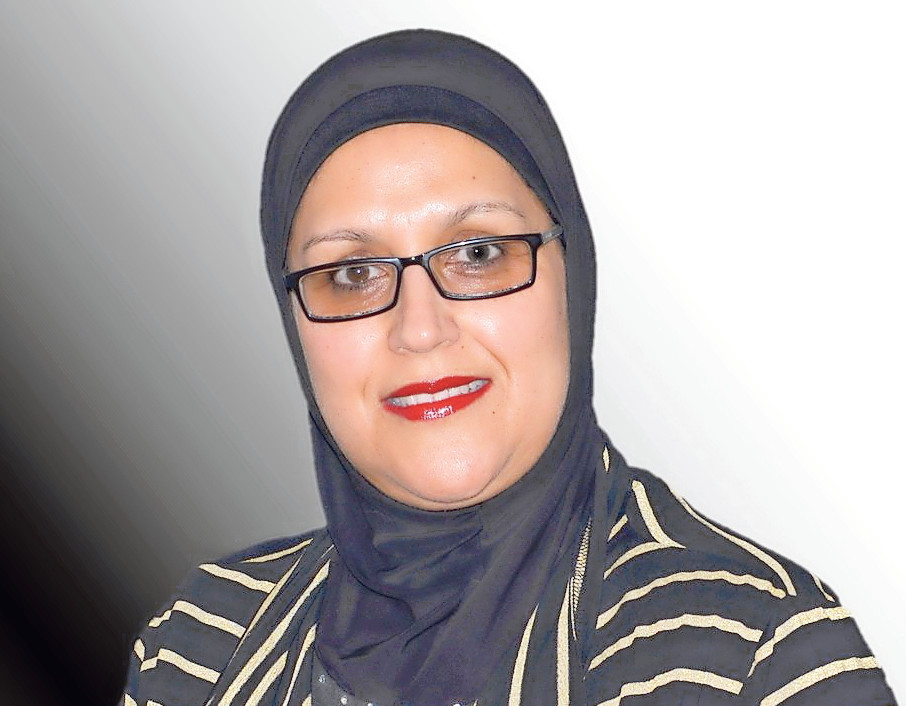 Professor Hassina Ebrahim
Professor Hassina EbrahimThe ECD educator workforce must experience the same levels of support and training as those in schooling.
The Project in Inclusive Early Childhood Care and Education (PIECCE) was implemented with funding from the European Union (EU) to meet the overarching goal of professionalisation of the birth to four workforce.
As part of the project, 10 higher education institutions (HEIs), four ECD nongovernmental organisations (NGOs) and two Technical and Vocational Education and Training (TVET) Colleges, as a multi-stakeholder team, took a deliberate stance to develop knowledge and practice standards.
The participation of nine of the universities was supported by the Teacher Education for Early Childhood Care and Education (TEECCEP), an EU funded project which is managed by the Department of Higher Education and Training (DHET).
The development of knowledge and practice standards was necessary for dealing with technical practices, pushing down curricula from schooling, fragmentary ECD teacher education systems and the implementation of the Policy on Minimum Requirements for Programmes Leading to Qualifications in Higher Education for Early Childhood Development Educators (MRQECDE) released in 2017.
The standards development process was informed by a literature review and a mixed method study with 14 institutions in six provinces in South Africa.
The study raised a number of issues that informed the standards.
It was clear that ECD educators would be dealing with vulnerabilities on two levels, namely, babies, toddlers and nursery children in the phase of early childhood as well as circumstances related to family wellbeing, socioeconomic conditions and geographical locations.
As such ECD educators would need to understand child development and early learning to support context responsive practices in a variety of early learning environments.
For this to happen, there is a need for an education workforce that is better educated and more knowledgeable and skilled about intentional and reflective practice to implement quality programmes in the early years.
The review showed that ECD practitioners are un- and underqualified to meet the demands of complex practices that include a focus on equity, inclusion and diversity.
Another complexity was the concern about an unstable workforce.
Practitioners were seeking better job opportunities in the foundation phase, which is more established and offers better conditions of service.
For teacher education it was clear that systems were operating in silos for the NGOs and the HEIs.
This led to different quality standards which, among other things, made it difficult for a seamless career path from NGOS to HEIs.
There were also a variety of practices related to curriculum design, content and work integrated learning without necessarily considering the attributes of highly quality ECD educators and the conceptual framework for educating the workforce.
In addition to the evidence from the study, the development of the knowledge and practice standards was informed by information gathering sessions. It was acknowledged that MRQECDE policy did offer pointers for the knowledge and practice standards that needed further development by people who were on the frontline of ECD.
The PIECCE team undertook site visits to ECD settings to better understand practice in context.
They observed training sessions, parent support, mobile bus programmes, special needs practices and centre-based programmes for children from birth to four.
This led to several reflection sessions and dialogue on key knowledge, skills and professional dispositions for early years educators in the new Diploma and Degree to be offered by HEIs.
Using the evidence base, the PIECCE team worked on the idea of having minimum standards that were flexible.
The team felt the standards must be adaptable to institutions’ vision and mission statements, for example, Africanisation and decoloniality of child development knowledge as part of being an institution driven by the indigenous imperatives for developing the educator workforce.
“Within our programme framework we outlined teaching and learning methods, including the importance of decoloniality, indigenous knowledge systems and Africanisation of knowledge spaces for our children.”
On a practice level, the team felt that a shared vision for what ECD educators should know and be able to do in the context of their practice would be a valuable undertaking.
Taking into account the fragmentation and inequities in the field, it was also felt that the knowledge and practice standards would reduce the gaps, especially for those that lacked opportunities to better their qualifications at HEIs — a new career pathway for ECD educators.
It would open up possibilities for recognition of prior learning and portability of credits when students move from one institution to another in the country.
Ten knowledge and practice standards were developed to guide the Diploma and the Degree for ECD educators in HEIs. These standards will be applicable to the workforce that focuses on the early learning component of the essential package of ECD services as outlined in the National Integrated ECD Policy and those that implement the National Curriculum Framework for birth to four. The workforce from continuing teacher education that could enter the Diploma and the Degree will be from the following ECD programmes:
• Centre-based ECD provision
• Parenting programmes
• Playgroups
• Toy libraries
• Mobile ECD services
• Day mothers/childminder
The knowledge and practice standards for the Diploma and Degree in ECD for birth to four are as follows:
1. Being and becoming a professional by paying attention to mindset, roles and responsibilities
2. Understanding and promoting child development and learning in different contexts
3. Building family and community relationships
4. Ensuring effective health, safety and nutrition practices
5. Creating effective learning environments, including managing behaviour
6. Planning and facilitating learning through play and other transformative pedagogies in appropriate ways (developmentally, culturally, linguistically, technologically)
7. Using curriculum and relevant content knowledge to build meaningful learning opportunities (6 Early Learning and Development Areas (ELDAs) in National Curriculum Framework for birth to four)
8. Observing, documenting and assessing to support young children’s development and learning
9. Understanding and addressing diversity, inclusion and equity to act in the best interest of all children
10. Showing basic leadership, management and administration skills
The core for professional learning in the standards pays attention to not only knowledge and skills required, but also mindsets, roles, responsibilities and “personal situated-ness”.
The team believed that a holistic response is necessary for context responsiveness and to address the development of the professional capacities of a thinking educator.
This concept was further unpacked in relation to disabling practices that focused on tips for early childhood educators.
The PIECCE team firmly believes that transformation in programme quality and child outcomes will become a reality if ECD educators are intentional and critically reflective in their practice.
Curriculum design must afford developmental opportunities for student engagement that includes self-reflection, guided practice and positioning as change agents.
The ECD workforce should then be able to identify themselves through the learning opportunities that will be offered in the qualifications.
This type of deliberation took place in the collaborative process of designing the curriculum for the Diploma and Degree in ECD and the materials development in PIECCE.
Currently eight HEIs have used the knowledge and practice standards to design the Diploma and the Degree for ECD educators.
The qualifications will be offered from 2021/2022.
One of the challenges in the implementation relates to the quality of lecturers for ECD qualifications at HEIs.
Since birth to four is a new area in teacher development in HEIs, lecturers are not necessarily knowledgeable about this phase from an education perspective.
There are those who research birth to four, staff from psychology, the foundation phase and other phases.
The funding from the DHET made possible capacity building staff through master’s and doctorate qualifications.
The HEIs will employ them post the funding period.
While this is helpful, there is a need to have dedicated training to support lecturers for birth to four at HEIs.
There is also a need to sustain the community of practice that was enabled through PIECCE for the development of knowledge for action.
The dialogue and learning exchanges were invaluable in creative new pathways for the ECD teacher education.
The funding support from the EU and the DHET catalysed change that would not have been otherwise possible.
The early years can look forward to a new cadre of ECD educators, and a new culture for action with and for young children and their families as a novel developmental path for teacher education for birth to four unfolds.
Professor Hassina Ebrahim works at the Department of Early Childhood Education, UNISA. She is also the UNESCO co-chair for ECD
African children and capacity building at Unisa’s heart
Hasina Banu Ebrahim is a full professor at the University of South Africa and the UNESCO Co-chair in Early Education Care and Development. Her research interests cohere around the theme Early Childhood at the Margins. This theme is developed in policy, practice and teacher education in the early years. She is the Institutional Lead for a European Union-funded project entitled Project for Inclusive Early Childhood Care and Education (PIECCE). She won the UNISA 2017 Women in Research Award in the category of Leadership. Her latest book (in press) is a co-edited volume entitled Early Childhood At the Margins: African Perspectives on Birth to Four.
“Africa has a rich cultural heritage that serves as a resource to shape the lives of African children,” says Unisa’s Professor Hasina Ebrahim, joint holder of the UNESCO Chair in Early Childhood Education, Care and Development.
Ebrahim’s main priority as co-holder of the UNESCO Chair in Early Childhood Education, Care and Development is to ensure that African research on early childhood policy, practice and teacher development is foregrounded. “We need a new cadre of scholars and researchers in the continent,” says Ebrahim, who is herself considered part of the new wave of early childhood researchers in Africa and has served as the director of institutes for building the capacity of early childhood researchers in South Africa, and broadly in Africa.
“There should be a concerted effort to promote research highlighting African realities and conditions impacting on child outcomes,” she says. “If this is approached in a more robust way, then our interventions will meet the criteria of context responsiveness. We need our own evidence to highlight our issues and map a way forward.”
For example, research has shown that there are significant inequities between Grade R children from poor and affluent families. “Children have developmental delays because of poverty and multiple-problem families. School is a whole new, unknown world to these children, some of whom have never seen a chair, for instance, and have to learn that this is something you sit on. Everything about school is new and strange to some children from backgrounds of poverty.” — Courtesy UNISA
Early Childhood Care and Education – Playing Creatively, From Birth To Age Five
On 12 July 2018, with generous financial support provided by the Department of Higher Education and Training (DHET) and the European Union (EU), the Wits School of Education (WSoE) hosted an Early Childhood Care and Education (ECCE) Seminar titled Playing creatively: Birth – Five.
The Wits School of Education is one of the universities participating in the Teacher Education for Early Childhood Care and Education Project (TEECCEP), aimed at building capacity in ECCE.
The WSoE is in the process of developing a Bachelor of Education for Early Childhood Care and Education (BED ECCE) programme, in line with the policy on Minimum Requirements for Programmes leading to Qualifications in Higher Education for Early Childhood Development Educators (MRQECDE).
Research shows that young children learn best through a playful approach to teaching and learning.
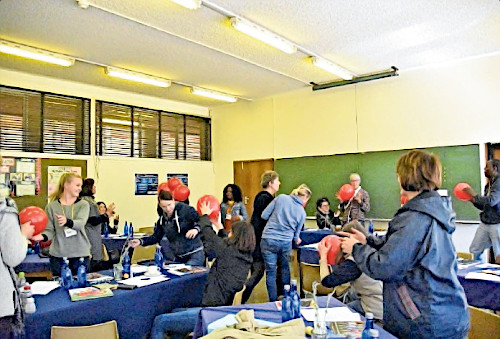 Workshop participants playing creatively
Workshop participants playing creativelyTherefore, the new qualifications for teachers and practitioners of young children, developed though the TEECCEP, are rooted in play-based pedagogies.
Unfortunately, research also indicates that many adults who work with young children find it extremely difficult to engage in a hands-on interactive, participatory approach to teaching these children, often because they have had little practical exposure to such approaches.
Dr Mignon van Vreden presented two exciting and enjoyable workshops on Music and the Very Young Child.
Colleagues from North West University, University of Pretoria, University of Witwatersrand, the DHET and various early learning centres in Gauteng embarked on an informative and fun journey, exploring how to engage babies, toddlers and older children in musical and movement experiences.
Participants then engaged in another interactive learning experience in a visual art workshop entitled Seeing through making – Visual Arts and the Young Child.
Dr Alison Kearney encouraged participants to explore their understanding of creativity.
They had to interpret their vision of a potted succulent and then draw their interpretation on a recycled polystyrene container, cover it with paint using colours of their own choice, and then print it onto a sheet of paper.
Dr Alta van As presented the final workshop, entitled Dalcroze Debrief: Music is Movement.
Through this lively enactment of the Dalcroze approach to embodied music education, participants experienced that sound is movement, and that moving creatively with others enhances beautiful music.
The fun-filled day ended with a light lunch, enjoyed in the company of new professional friends. Everyone left as the proud owner of an original artwork, created in the Visual Arts workshop.
An experiential adventure in learning about Early Childhood Care and Education
Walter Sisulu University (WSU) is a recipient of funding from the Department of Higher Education (DHET) and the European Union (EU) through the Teacher Education for Early Childhood Care and Education Project (TEECCEP).
Early Childhood Care and Education (ECCE) is a new area that the WSU Faculty of Education is adding to its programme offerings.
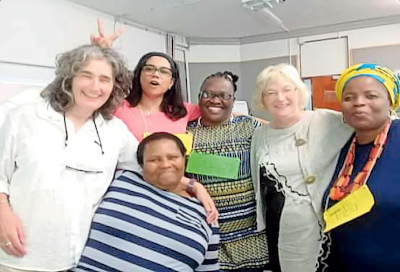 Neliswa Mtengwane takes part in a PRAESA workshop that introduced key policies of the Early Childhood Development field, particularly play as a method of learning
Neliswa Mtengwane takes part in a PRAESA workshop that introduced key policies of the Early Childhood Development field, particularly play as a method of learningAs there is a need to build capacity in this specialised area, I was nominated as a scholar to be awarded a bursary for postgraduate studies in the field of ECCE, along with two other newly-appointed lecturers.
WSU collaborated with other universities, public and private institutions in the development of a programme framework for a Bachelor of Education in ECCE (B Ed ECCE) and a Diploma in ECCE (Dip. ECCE).
This was a very valuable experience and enabled the ECCE team at WSU to design and develop a Dip. ECCE.
One of the highlights of my involvement in the TEECCEP was attending a workshop conducted by the Project for the Study of Alternative Education in South Africa (PRAESA), affiliated to the University of Cape Town.
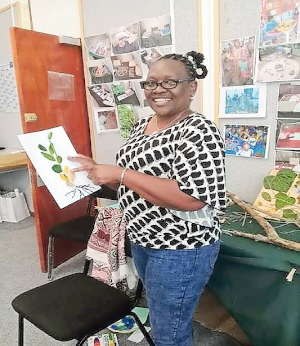 Nelilswe Mtengwane
Nelilswe MtengwaneThe workshop was part of the EU and DHET funded TEECCEP and was attended by representatives from other universities, early childhood education training institutions, and representatives of government and funding organisations. It dealt with the fundamentals of nurturing and educating 0-4 year olds.
The workshop, which was titled, What should we do with the children on Monday? Educating ourselves, educating our children: a 5-day curriculum orientation, introduced me to key policies that inform the Early Childhood Development field.
What struck me as really important in these policies is the emphasis placed on the rights of children and the need to enable social justice for all children.
I found learning about the potential benefits of ECCE for children from disadvantaged areas very inspiring, given that the geographical area that I live and work in includes many economically disadvantaged families.
The National Integrated Early Childhood Development Policy (NIECD) states that “low socio-economic status is a key predictor of poor early childhood development.”
However, the provision of timely and appropriate quality early childhood development services, including early learning stimulation, can “yield lifetime development returns for the child, his or her family and society”.
As part of the “hands-on, experiential adventure bringing theory and practice together”, we organised learning environments for the different Early Learning Development Areas (ELDAs) as described in the National Curriculum Framework for birth to four (NCF). Apart from being informative it was also highly enjoyable.
I was empowered with knowledge of how babies and young children learn, pedagogical strategies to support children’s learning and ways of working in group settings with babies, toddlers and young children.
I learned that the pedagogy of play is at the centre of children’s learning in ECCE and that the creation of learning environments according to the ages of the children needs more attention in the centres.
Unfortunately, the centres in rural areas are often the most neglected and under-resourced, but we also learnt that learning experiences for young children can be constructed by using everyday resources such as found/recycled materials, clay, wood, sand and water.
I came to understand how much can be done to stimulate children’s learning and development, even in a disadvantaged context, but also how much still needs to be done.
I was hands-on in organising the learning environment for the ELDA that deals with identity and belonging through play.
I was exposed to ideas on how to involve children in play, creating an environment that embraces identity and belonging and that babies learn better in a colourful and interesting environment in which they have to touch some of the objects.
This workshop took place in 2018 when I had just joined the TEECCEP team at WSU and it strongly influenced my view of young children as actively engaging with the world around them.
It is us adults who need to create opportunities for children’s natural curiosity and creativity to flourish, because this is how they learn best. — Neliswa Mtengwane
Making Early Childhood Care and Education (ECCE) Count At The University of Pretoria
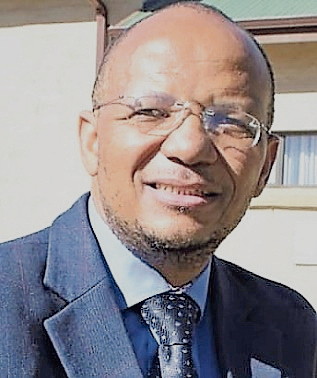 Professor Chika Sehoole
Professor Chika SehooleThe Dean of the University of Pretoria (UP), Prof Chika Sehoole, wishes to acknowledge the European Union (EU) and the Department of Higher Education and Training (DHET) funding in the development of the Bachelor of Education in Early Childhood Care and Education (B.Ed ECCE) programme.
The programme has been developed as one of the sub-projects of the Teacher Education for Early Childhood Care and Education Project (TEECCEP), in line with the requirements of the Policy on Minimum Requirements for Programmes Leading to Qualifications in Higher Education for Early Childhood Development Educators.
This policy has for the first time in the history of South Africa provided an opportunity for ECD teachers to access higher education qualifications and craft a career in ECCE, working with children up to four years old.
Developing a cadre of professionally qualified ECCE teachers is in line with the vision of professionalisation, continuing professional development and creating career paths, as expressed in the National Integrated Early Childhood Development Policy.
 Mashuda Ebrahim (UP), Professor Hasina Ebrahim (UNISA), Ms Zelda Adendorff (DHET), Dr Cycil Hartell, Dr Aina Bunmi, and Dr Keshni Bipath
Mashuda Ebrahim (UP), Professor Hasina Ebrahim (UNISA), Ms Zelda Adendorff (DHET), Dr Cycil Hartell, Dr Aina Bunmi, and Dr Keshni Bipath
Given the acknowledged importance of the early years for development and growth, producing professionally qualified ECCE teachers is crucial to improving the quality of teaching and learning in ECCE in order to enable better outcomes for children.
The University of Pretoria aims to contribute to fulfilling this need through offering the B.Ed ECCE.
The university has also raised the visibility of ECCE by providing short seminars for practitioners on the delivery of quality ECCE programmes.
On 15 March 2019, the Department of Early Childhood Education (ECE), with the assistance of an ECD forum held in Mamelodi, Tswane, invited local practitioners from the townships of Mamelodi and Eersterust to a seminar.
The seminar was held in Mamelodi; the theme of the seminar was Professionalisation, Policy and Pedagogy in Playrooms.
The keynote speaker, Professor Hasina Ebrahim, and postgraduate and final year students delivered presentations on transforming ECCE teacher development to over 200 practitioners.
According to Prof Ebrahim, unlocking the potential of the youngest in our society is intricately interwoven with the quality of the practitioners we have in the birth to four workforce.
At the start of her presentation she teased out the nuances of transformation as opposed to reformation in early years care and education.
Contextual issues that warrant radical change in teacher development were also highlighted in her talk.
One of the critical issues she emphasised relates to the need for a “new professional” who will be able to work with complexities and uncertainty as the new normal in early childhood care and education.
Dr Keshni Bipath and some final year students in the B.Ed Foundation Phase delivered poster presentations about the implementation of the Early Learning Development Areas from the National Curriculum Framework.
PhD students from the University of Pretoria also presented on topics related to their research studies, covering the following areas of interest: teaching and learning in playrooms, quality resources in playgrounds and playrooms, and the transformation of the qualifications landscape for ECCE educators.
The ECE Department hopes to hold bi-annual seminars in Mamelodi and other suburbs to introduce practitioners to more responsive early childhood practices for the development of our youngest citizens, the birth to age four children.
One of the EU and DHET sponsored postgraduate studies in the ECCE field, carried out by Pam Zulu, investigated how ECCE practitioners in rural and urban settings in KwaZulu-Natal perceive their education and training experiences.
In her M.Ed dissertation, Zulu concludes that an effective way to foster a positive professional identity and raise the profession’s esteem in communities is to ensure that practitioners attain professional qualifications in the field of ECCE.
This research identified gaps and potential connections in the realm of practitioners’ education and training experiences in rural and urban settings in and near Durban, KwaZulu-Natal.
The research further identified what types of support are needed from governmental and professional institutions to enhance teaching and learning in ECD centres.
Zulu proposed an interesting model for mentoring and supporting practitioners’ education and training in rural areas and poor communities.
Her findings strongly substantiate the need for equity, which drives the government’s policies in the sector, and her study illustrates that significant differences exist between the respective education and training practices of ECCE practitioners in rural areas and those in urban areas.
Inequalities exist in relation to resources, salaries, working conditions and opportunities for further studies and professional growth.
 Mamelodi workshop participants
Mamelodi workshop participants
If authorities are serious about breaking the poverty cycle in South Africa, then more support needs to be given to ECD centres in rural areas.
Other activities at UP that were made possible through the TEECEP included presenting papers and networking with global scholars about trends and issues in ECCE.
Dr Bipath and Dr Judy van Heerden presented papers on ECCE at the 29th European Early Childhood Education Research Association (EECERA) conference held at Thessaloniki, Greece from 20 to 23 August 2019.
At this conference thousands of delegates from across all continents reflected on the challenge for all nations of acknowledging the importance of the early years and of addressing the issue of measurement and accountability with regard to high quality ECCE.
The conference placed attention on “What counts?” and “Who is making it count, and why?”
Delegates encouraged ECD researchers to raise the profile and visibility of early childhood studies and to make it count in the corridors of power.
The ECE Department at the University of Pretoria is certainly “making the early years count”, and is in the process of submitting the new B.Ed ECCE programme to the Council on Higher Education (CHE) for accreditation.
The ECE Department hopes to implement the new qualification in 2022.
For further enquiries about the programme, please contact Dr Bipath at the University of Pretoria on [email protected]
Quality is at the heart of teacher education, says DHET Chief Director Dr Whitfield Green
More than R340-million in funding since 2011 from the European Union (EU) has made it possible to strengthen the quality of teaching, learning and research in South Africa, says Dr Whitfield Green, the Chief Director, Teaching, Learning and Research Development in the Department of Higher Education and Training.
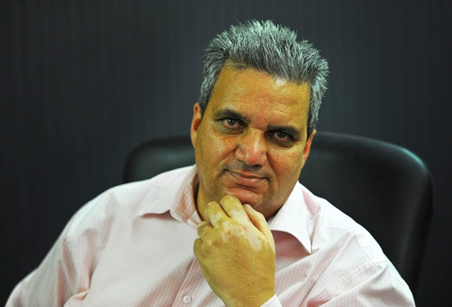 Dr Whitfield Green is the Chief Director, Teaching, Learning and Research Development in the Department of Higher Education and Training
Dr Whitfield Green is the Chief Director, Teaching, Learning and Research Development in the Department of Higher Education and Training In an interview with the Mail & Guardian, he said the funding support from the EU has made it possible for the academics co-ordinating the projects to use their knowledge and expertise in creative ways to strengthen the quality of teaching, learning and research in South Africa.
He said the DHET gratefully acknowledges the commitment and passion for excellence that has been evident in engagements with the officials from the EU.
Green said the partnership between the EU and the DHET goes a long way back. “The EU has a long partnership with the DHET. The teacher education partnership goes back to around 2008 and 2009, when we had conversations about the next allocation of funding for education. We conceived a large programme on primary teacher education, and part of it was focused on foundation phase teacher education,” said Green.
“The EU initially allocated funding to the DHET to the tune of R141-million to strengthen foundation phase teacher education and grow universities offering African languages. Today, at least 21 universities ended up offering foundation phase programmes. A further agreement to continue support for strengthening teacher education was reached and a further R200m was made to strengthen teacher education across a range of sub-sectors. Its a long standing relationship that has enabled us to strengthen teacher education in the country.” Today at least 21 universities are offering foundation phase programmes.
Green said the Teaching and Learning Development Capacity Improvement Programme (TLDCIP) — under the DHET’s Director-General and managed by the Chief Directorate for Teaching, Learning and Research Development — consists of five projects, all focused on improving teacher education.
While some people would think that this focus is limited to school teachers, Green clarified that there are several other beneficiaries of the programme, including sub-sectors such as ECD, basic education, the TVET and CET college sector and university teaching and learning.
 UKZN Engineering Dean, Professor Glen Bright, and Dr Whitfield Green from the Department of Higher Education and Training.
UKZN Engineering Dean, Professor Glen Bright, and Dr Whitfield Green from the Department of Higher Education and Training.
The TLDCIP is a five-year programme implemented by the DHET. It is part of the Teaching and Learning Development Sector Reform Contract (TLDSRC), conceptualised within the framework of the South African-European Union Multiannual Indicative Programme 2014-2020, as a response to specific developmental needs within the education, training and innovation sector.
The multiannual indicative programme’s overall objective is to “assist the government in transforming the education, training and innovation system so that it contributes to the improved economic performance of the country”.
Green said conceptual model for the TLDCIP works from the premise that research traverses all the other areas of the programme.
“Research enables the Department and other partners to gather information about the system: what is happening in the system, teacher supply and demand, interaction with the universities in relation to teacher education, and what are the pressures. During summits and conferences we have focused on such issues in an attempt to understand how to strengthen teacher education, including numeracy and literacy, teaching practices and building programmes for ECD,” said Green.
“We have grown teacher graduates in the last 10 years through the programme. In 2008 we had about 6 000 graduates coming out. That has increased. In 10 years, certainly many more teachers are coming out in terms of the supply and demand gap. But are we producing enough teachers with the right teaching subjects such as maths, science and language teachers? It’s an issue of relative demand. A study we did with Stellenbosch University is confirming that at this point in time absolute demand is addressed, but that relative demand — demand for teachers with specific sector, phase and subject specialisations — remains. Absolute demand is also likely to increase again as we approach 2030, and many more teachers reach retirement age.”
Green said there is huge demand for specific kinds of teachers e.g. Maths Teachers. “We have to get the right kind of specialisation teachers. We have to get the issue of relative demand right. All graduates are employable. However, we have seen, while mapping graduates with the employment PERSAL (Human Resource, Personnel & Salary System), there is a 60% uptake of graduates one year after graduation. There’s 40% not accounted for. We need to investigate where do they end up, unemployed — or end up in other jobs, or the private sector, or do they emigrate and teach elsewhere? That’s what we would like to know,” said Green.
To all intents and purposes, the reports on the TLDCIP show that it is succeeding, primarily due to the sustainability built into the programme, according to Green.
“In terms of funding … we have funded new lecturers to do Master’s and PhDs, and once those programmes are completed, these staff become the lecturers at these institutions,” said Green.
“We are also ensuring sustainability through engaging our partners in teacher education, such as the EU, for continued support. The EU has been an amazing partner. Teacher education has been significantly strengthened in the country, in part through the support of the EU.”
He believes that there is a strong interdependency between the Department of Basic Education and the DHET for teacher education.
“Quality is at the heart of teacher education. Quality is influenced by the size, shape and substance of the teacher education system,” according to Green.
He emphasised that the TLDCIP is a specific intervention to strengthen:
a) ECD educator development
b) Primary teacher education
c) Inclusive and special needs teacher education; and
d) Technical and Vocational Education and Training (TVET) and Community Education and Training (CET) college lecturer education.
Green leads the work of the Department in respect of:
• Supporting the development of a university-based teacher education system that is able to produce sufficient numbers of high quality teachers for all education sub-sectors, including pre-schooling, schooling and post-schooling.
• Developing, implementing and monitoring policy and programmes to support capacity development at universities for advancing student success, staff development and programme/curriculum development, including through management and oversight of the Department’s University Capacity Development Programme.
• Development of a co-ordinated system for the management of international postgraduate scholarship partnerships.